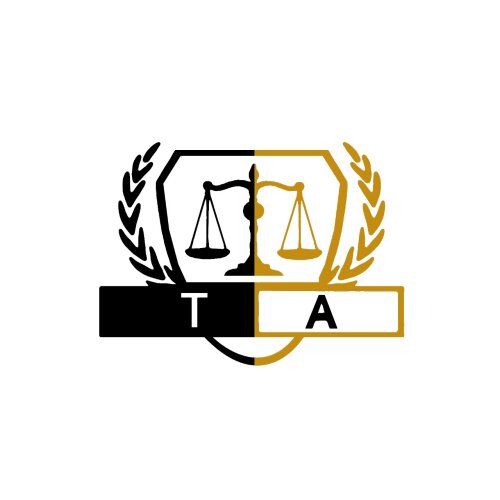Best Divorce & Separation Lawyers in Faridabad
Share your needs with us, get contacted by law firms.
Free. Takes 2 min.
Free Guide to Hiring a Family Lawyer
List of the best lawyers in Faridabad, India
India Divorce & Separation Legal Questions answered by Lawyers
Browse our 2 legal questions about Divorce & Separation in India and read the lawyer answers, or ask your own questions for free.
- Married life issue.
- How to get divorce. What is the criteria.
-
Lawyer answer by MAH&CO.
Thank you for your question.As an experienced family lawyer with decades of practice in divorce, khula, and marital dispute resolution, I can guide you through the legal process of obtaining a divorce in Pakistan. Divorce Procedure & Criteria (for Men):Under...
Read full answer - It is possible to do a marriage null and void?
- I’m French and live in France. I married with an Indian in Hathras in India. He lives in Delhi in Tagore garden. He cheated with me and he was interested by visa and money. He created a fake wedding card, made me sign some documents to get the registered marriage... Read more →
-
Lawyer answer by LAW CHAMBER OF ADVOCATE RAJVEER SINGH
BASED ON THE INFORMATION PROVIDED BY YOU, THIS MARRIAGE IS VOID AB INITIO AND IT CAN BE DECLARED VOID BY THE INDIAN FAMILY COURTAs you mentioned, since the marriage was conducted under the Hindu Marriage Act without a valid religious...
Read full answer
India Divorce & Separation Legal Articles
Browse our 1 legal article about Divorce & Separation in India written by expert lawyers.
- A Layman’s Guide to a Landmark Ruling on Rights of Divorced Muslim Women
- The Supreme Court of India, on 2 December 2025, delivered a judgment that carries deep significance for Muslim women across the country. The case, Rousanara Begum v. S.K. Salahuddin (2025 INSC 1375) SC Judgment of 2Dec2025, concerned a simple yet socially important question:When gifts such as cash, gold, or household... Read more →
About Divorce & Separation Law in Faridabad, India
Divorce & Separation laws in India are part of the broad family law system and Faridabad is no exception. The ruling law can be dictated by the religion of the couple involved. For instance, Hindus, Buddhists, Sikhs, and Jains follow the Hindu Marriage Act of 1955, which also applies to divorce. On the other hand, Muslims follow their own laws, regulated by The Muslim Personal Act, 1937. Either spouse may apply for divorce under certain circumstances; mutual consent, cruelty, desertion, conversion, mental disorder, communicable disease, renunciation of the world, or presumption of death.
Why You May Need a Lawyer
It's generally recommended to hire a lawyer if you’re considering or going through a divorce or separation because these procedures involve complex legal paperwork, negotiation, and understanding of legal rights. Lawyers can provide guidance and representation to protect your rights and interests, particularly in cases involving property distribution, alimony, child custody, and other complications. If your spouse has hired a lawyer, it's crucial that you also have legal representation to ensure fairness.
Local Laws Overview
The fundamental rules governing divorce and separation primarily depend on the religion of the spouses. According to the Hindu Marriage Act, a petition for divorce can be filed in a district court within the local limits where the husband and wife last resided together, where the marriage took place, or where the wife currently resides. Grounds for divorce include cruelty, desertion for two years, mental illness, renunciation of the world by entering a religious order, and not heard of as being alive for seven years.
Frequently Asked Questions
1. How much time does it take for a divorce case to resolve in Faridabad?
The duration of a divorce case can greatly vary, but it typically lasts from 6 months to 2 years depending on the complexity of the case and cooperation between the parties.
2. Is mutual consent necessary for a divorce in Faridabad?
While divorce can be smoother and faster with mutual consent, it's not necessary. One party can still file for divorce citing acceptable grounds.
3. Does the divorce law differ on the basis of the spouse’s religion in Faridabad?
Yes, divorce law in India varies based on religions. Hindus, Buddhists, Sikhs, and Jains follow the Hindu Marriage Act, while Muslims follow The Muslim Personal Act.
4. What are the possible outcomes for child custody?
Child custody can be decided as sole custody, joint custody, or visitation rights, and the court focuses on the best interest of the child in these cases.
5. Can a lawyer represent both spouses?
No, a lawyer can only represent one party to avoid conflict of interest. Each spouse should have their own representation in these cases.
Additional Resources
Some possible resources for further information and assistance include the District Court of Faridabad website, the National Legal Services Authority, and the NALSA app for legal services.
Next Steps
If you need legal assistance in divorce or separation, begin by identifying and contacting experienced and reputable lawyers specializing in divorce cases in Faridabad. Ensure the lawyer is knowledgeable about the specific laws that apply to your situation, discuss all relevant information with them, and establish a suitable avenue of communication.
Lawzana helps you find the best lawyers and law firms in Faridabad through a curated and pre-screened list of qualified legal professionals. Our platform offers rankings and detailed profiles of attorneys and law firms, allowing you to compare based on practice areas, including Divorce & Separation, experience, and client feedback.
Each profile includes a description of the firm's areas of practice, client reviews, team members and partners, year of establishment, spoken languages, office locations, contact information, social media presence, and any published articles or resources. Most firms on our platform speak English and are experienced in both local and international legal matters.
Get a quote from top-rated law firms in Faridabad, India — quickly, securely, and without unnecessary hassle.
Disclaimer:
The information provided on this page is for general informational purposes only and does not constitute legal advice. While we strive to ensure the accuracy and relevance of the content, legal information may change over time, and interpretations of the law can vary. You should always consult with a qualified legal professional for advice specific to your situation.
We disclaim all liability for actions taken or not taken based on the content of this page. If you believe any information is incorrect or outdated, please contact us, and we will review and update it where appropriate.









